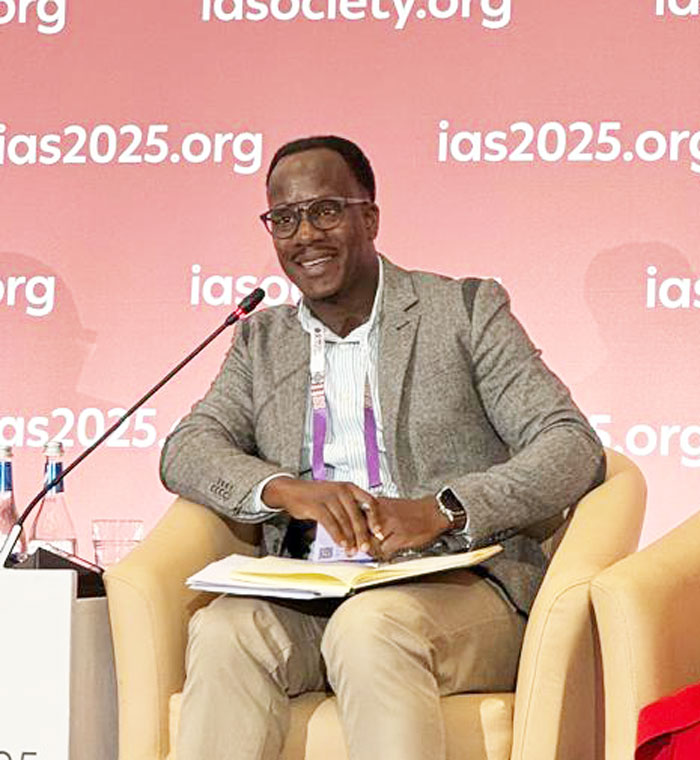Uganda’s Anti-Homosexuality Act has devastated fight against HIV
Joto La Jiwe is a Ugandan correspondent for the African…
New study reveals huge drop in Uganda’s queer people accessing HIV prevention and care

A study recently conducted by human rights activists and institutions from Uganda and the United States has revealed that the Anti-Homosexuality Bill (AHA) 2023 significantly impacted HIV-related service delivery leading to increased discrimination, harassment, drop out from treatment and HIV-related deaths among key populations, including men who have sex with men (MSM) and transgender persons.
The study report, titled Impact of the Anti-Homosexuality Act on HIV Service Delivery in Uganda: Evidence from Community-Led Monitoring, analyzed data and interviews from 320 public health facilities and 50 drop-in centers (DICs) between 2022 and 2024. The study findings were presented at the International Aids Society (IAS) conference in Kigali Rwanda in July.
The report reveals a 31% drop in HIV testing for MSM, a 38% drop in population-specific services, as well as reports of increased stigma, fear, and client dropouts at DICs, and increased harassment, raids, and mental health distress among staff. Harassment included stalking, verbal threats and physical violence.
Despite some indicators of improved service delivery overall, the study found that MSM-specific access sharply declined, with DICs facing legal threats and strained partnerships.
“DICs emerged as crucial yet vulnerable safety nets for criminalized populations, as public health facilities became less accessible and less tailored to the needs of MSM. DICs faced heightened legal risks and deteriorating relationships with health facilities, complicating referrals and access to essential commodities,” the report summary says.
In DICs, 56% of the respondents were less likely to identify as LGBTQ post-AHA; and among MSM, the proportion of those finding DICs easy to access declined by 27% and those receiving PrEP dropped by 32%.
50% of MSM reported experiencing stigma at public health facilities compared to 39% of other key populations.
While a 2023 Ministry of Health circular called for non-discriminatory service delivery, the report reveals that some DICs faced vandalism and government raids with patients’ records confiscated.
“Many KPs stopped visiting DICs, leading to increased HIV diagnoses and deaths among those who disengaged from care due to fear,” the report says.
The study authors include Frank Mugisha, Executive Director of Sexual Minorities Uganda, Kenneth Mwehonge from Health Promotion and Social Development Uganda, and Elise Lankiewicz from the Andelson Office of Public Policy in Washington, DC.
It is the first study using community-owned data to track criminalization’s impact on HIV care in Uganda. The full paper will be published in the Journal of the International AIDS Society.
According to the World Health Organization, MSM are 23 times more likely to acquire HIV than the general population. While the global HIV incidence has declined by 39% since 2010, new infections among MSM have risen. Access to HIV services for MSM is therefore crucial for ending HIV as a public health threat. But Uganda’s Anti-Homosexuality Act is undermining the hard-earned progress towards ending AIDS by 2030.
In a July 10 press release, UNAIDS expressed concern over the rise of punitive laws criminalizing same-sex relationships and transgender status that make HIV services inaccessible.
“Countries like Uganda, Mali, and Trinidad and Tobago have seen recent harmful and discriminatory changes to their laws targeting KPs, pushing them further from care and dramatically raising their risk of acquiring HIV,” the press release says.




